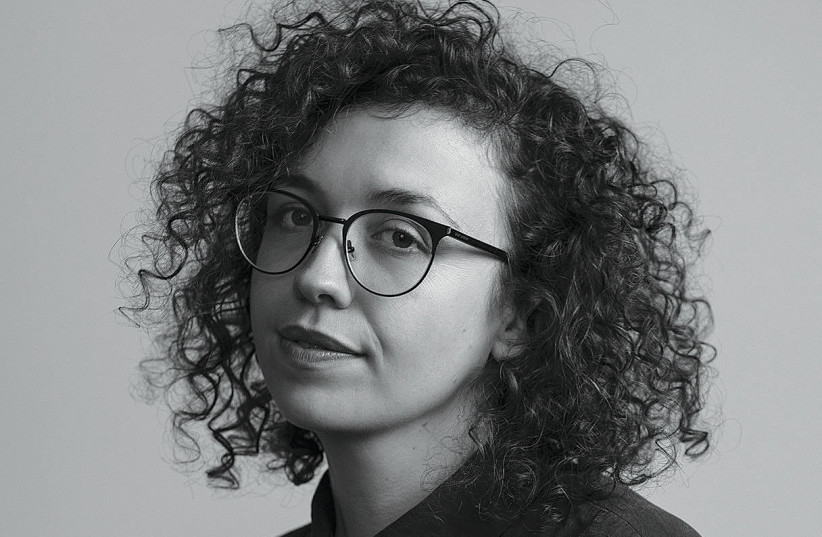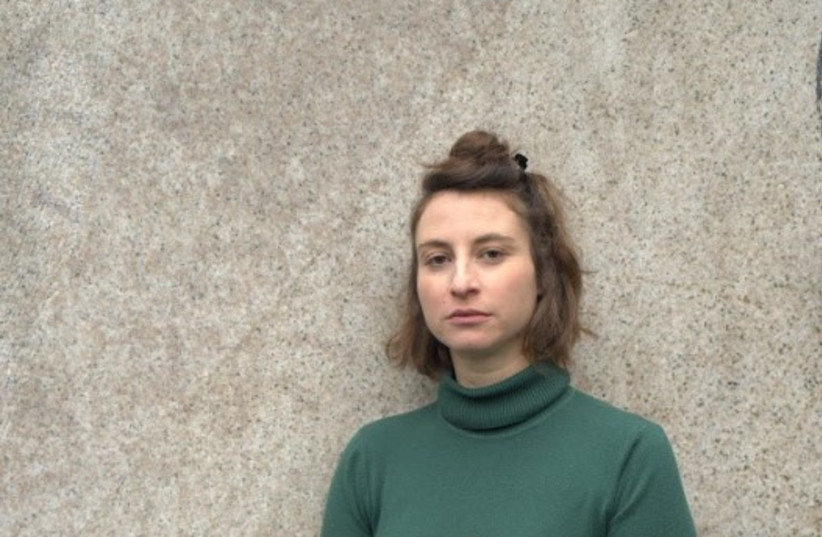"In September 2011, I began my first job in my career service in the army. I knew that under my command there would be one soldier. I had the fears of a young officer: Who is waiting for me there? What is she capable of? Will we like each other? How will we get along? When I met her for the first time I immediately understood everything,” wrote Tel Aviv-based multidisciplinary artist and researcher Irit Sternberg in a Facebook post penned nine days after the war first broke out.
“Adi Vital, or Adivi, as we dubbed her before she changed her name upon getting married, was a small human diamond with a penetrating, smiling gaze, and sharp wisdom… I didn’t see her as a soldier, but rather as a staff member, and later – simply as my friend.”
Sternberg wrote these words to commemorate her former aide and friend after it emerged that Adi Vital-Kaploun, a 33-year-old resident of the southern Kibbutz Holit, was murdered by Hamas terrorists on October 7. Vital-Kaploun, a mother of two young children, was declared missing on the day the war broke out and her loved ones feared that she was kidnapped and taken to Gaza. Only after many days of heart-wrenching anxiety did her family and friends learn that she had been killed.
Vital-Kaploun’s untimely death at the hands of terrorists rattled Sternberg deeply. “Already when we first thought that Adi might have been kidnapped, I knew that I couldn’t simply sit and wait. I had to do something,” Sternberg says in conversation with The Jerusalem Post.
That meant putting together a group called Women United for Humanity, a spontaneous initiative that rapidly grew to include hundreds of members both in Israel and worldwide. The women involved act as an interconnected mobile network, using their professional and personal experience and connections to spread information about the situation of the hostages, call for their release and promote diplomatic and social actions across the globe.

When asked why the group is intended for women, Sternberg explains that she views other women as her natural partners and those most able to be effective due to their inherent empathy. “We don’t exclude men. There are many wonderful men who collaborate with us, and of course we acknowledge their influence. Nonetheless, from the get go I knew that if we wanted to persuade people, speaking to women would make the most change.”
A major factor of Women United for Humanity’s work, Sternberg explains, is helping change public opinion and making sure that the dire situation of the hostages is not forgotten. One of the ways the group does this, is by approaching women in positions of power in the private and public sectors – from diplomats to company CEOs – and encouraging them to take action.
Calling for the immediate release of the hostages
Another way in which Women United for Power helped shape and inform the narrative about the war is by creating online content, such as a viral video that was published initially on Instagram and called for the immediate release of all 239 hostages held in the Gaza Strip. The video, which features an impassioned plea by Canadian-Israeli actress and digital creator Renny Grinshpan, addressed women of all religions and ethnicities, reaching tens of thousands of people.
And what does Sternberg consider a success in the battle over public opinion during wartime? “I’m optimistic by nature, so of course I would like to believe that all hostages will be freed. That will be the biggest success of all. Until then, I celebrate small and big steps alike,” she replies.
One such big step is the publication in October of an international letter listing the war crimes and crimes against humanity that Hamas has been carrying out during the war. The letter was initiated by a key member of Women United for Humanity – Israeli businesswoman Esther Barak-Landes, the daughter of former Supreme Court president Aharon Barak.
Signed by almost 200 signatories, whose number includes former high court judges from across the globe, the letter also directly pointed out that in its response to Hamas’s attack on Gaza-border communities, Israel is not violating any international rules of armed conflict.
“Just receiving this amount of international backing is amazing in and of itself,” Sternberg shares. “But perhaps the most amazing thing about this letter, is that it was signed by Richard Goldstone [the South African former judge who headed the UN Fact-Finding Mission on the Gaza Conflict, also known as the Goldstone Report, which accused Israel of committing war crimes after the 2014 Israel-Gaza conflict].”
Speaking on behalf of all mothers

Gallia-Kind, a performance artist and choreographer, is a close friend of the Israeli Roman family. Yarden Roman-Gat, 36, a former resident of Kibbutz Be’eri, is thought to have been abducted on October 7; her partner Alon and her three-year-old daughter, Geffen, managed to escape and survived the kidnapping attempt.
The Roman family is currently staging an international campaign calling for the release of Yarden and all of the other hostages. In an effort to support the family, Gallia-Kind gave a heartfelt speech at a rally held in Amsterdam’s Dam Square in mid-October. Addressing the thousands who came to show their solidarity with Israel, Gallia-Kind urged the masses: “Before I’m anything else in the world, I am a mother. I belong to the biggest human tribe to exist, beyond any race, nationality, religion, or ideology. It is the tribe of life, the tribe of the mothers. Look at me and see Yarden.”
Drawing a clear comparison between herself and Yarden – both young women in their mid-thirties, both mothers to three-year-old toddlers – she told the rally-goers Yarden’s story, calling for any and all mothers to identify with her cause.
The speech, which was posted on social media and gained an immense following, led to Gallia-Kind being invited to speak before the European Parliament’s special committee that gathered in late October to discuss the Israel-Gaza conflict. There, too, Gallia-Kind delivered a moving, tearful speech, sharing that she is pregnant and has “18 weeks to make the world better again. The world cannot debate this. If someone in any parliament thinks that this is legitimate [the murder and kidnapping of civilians] then he needs to call his mother. Because every mother in the world will tell you that slaughtering and burning alive and kidnapping and putting on social media and calling parents and putting on social media how you killed their kid [is not legitimate].”
The second speech, which has since circulated on social media as well, garnered massive media and public attention worldwide and has reached millions. It thrust Gallia-Kind to the helm of a campaign she has been running ever since. The purpose of this campaign – which has led the artist and young mother to travel to the US (and soon to the UK) to deliver more speeches and meet with influential figures – is to sound the voice of mothers worldwide who can identify with the painful story of Yarden Roman-Gat.
“I just felt that this was my way to tell this story,” says Gallia-Kind about the speeches she made. Only after making these addresses, she tells the Post, “was I able to understand that all the mothers could identify with this. Every mother can say: ‘Look at me and see Yarden.’ From people’s powerful reactions to these speeches I understood that every mother could relate to Yarden through this perspective, and that makes a big difference.”
“Every mother will tell you that this situation, in which babies, children and adults, and families are held hostage with their whereabouts unknown, is cause for extreme anxiety,” she adds, vowing to continue the campaign in any way she can until all hostages are released.
“From my speeches and meetings [with diplomats, parliament members, and other figures] I understood how important it was for me to continue, and for them to see a face and hear a voice and to make this personal so that they care. The voice of the mothers is simply passing through me, but it’s certainly not only mine.”
